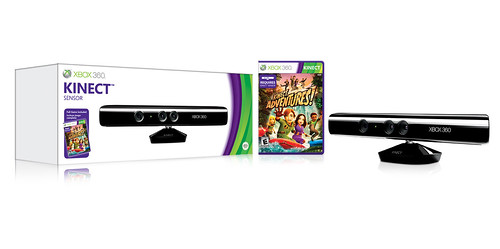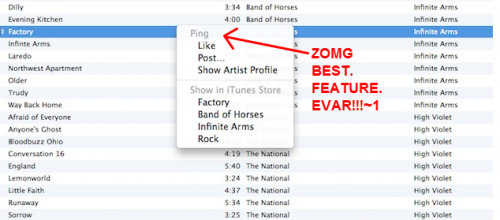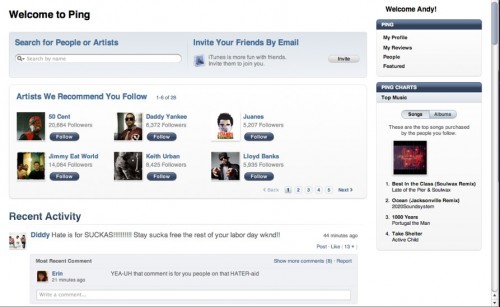
This morning, we finally got confirmation on pricing for Microsoft’s Kinect peripheral for Xbox 360. Now, this shouldn’t come as a surprise to people who noticed that Gamestop had posted the $149.99 price on their website right around E3 time last month. However, Microsoft had been strangely quiet on confirming this price point until today.
Here are the two ways you can obtain Kinect this fall:
- For anyone currently owning an Xbox 360: Kinect peripheral w/ Kinect Adventures game, $149.99
- For anyone without an Xbox 360: New Xbox 360 w/ 4GB memory storage and matte finish + Kinect peripheral w/ Kinect Adventures game, $299.99
Basically, if you are a new Xbox 360 owner, you can grab both for a $50 discount off MSRP. Microsoft also announced that all first-party Kinect launch titles would be retailing for $49.95.
Now, after reading gaming community reactions to this, one would think that Microsoft had done the video game equivalent of leaving Cleveland to join the Miami Heat. The vast majority of commenters and posters on notable video games communities voiced their extreme displeasure at the price point for Kinect. Many labeled Kinect as a “rip-off” and made comparisons to Sega’s ill-fated 32X peripheral addon for the Genesis. One poster on the neoGAF called it “A disaster of Kin proportions.” Even Microsoft’s own community site, Major Nelson, wasn’t immune to the backlash.
What went wrong? Just one year ago, Kinect (then called Project Natal) was the darling of both core gamers and the mainstream media. People were drinking the Kool-Aid of limitless possibilities in hands-free gaming combined with a futuristic “Minority Report’-esque interface for viewing media content.
Two factors led us to this point.
First of all, the launch software simply is not compelling, at least to core game players. The best game Kinect has going for it is a dance game which admittedly is quite good, but may not have quite the same appeal to Johnny McCallofDuty. The other software is widely viewed as non-gamer content (fitness titles and kids software) or glorified Wii mini-game collection knock offs.
Secondly, Microsoft bumbled the pricing information of the product. When first announced, many people were estimating that Kinect would cost at least $199.99. Pricing seemed to be secondary to the wonder and amazement that such a product existed and could be obtainable by the consumer.
In October of 2009, Wedbrush Morgan analyst, Robert Pachter, guessed the price of Kinect (then Project Natal) at $49.99 (!) with a worst cast scenario of $99.99. Gamers were thrilled. Not only was this device imminent, it would be affordable too!
Flash forward to June of 2010 where online retailers such as Gamestop and Amazon put up the Kinect for pre-order at a $149.99 price point. Grumblings were heard throughout the gaming community, but most were holding out for hope that Microsoft would change the pricing back to at least $99.99 when it gave an official announcement. They did not.
Clearly, Microsoft needed to sell the device at the $149.99, but knew that community backlash was already brewing. They tried to compromise by bundling in Kinect Adventures in with the peripheral. (If we assume Kinect Adventures would have cost $49.99 separately, one could derive a $99.99 price for the device and add the $49.99 for the game to get to the $149.99 price point) However, this seems to have gone largely dismissed by the community because it’s a title that no one desired nor was it perceived as being worth the full retail price tag of $49.99.
If it’s one thing people don’t like, it’s the feeling of being bait and switched on pricing, even if said pricing was never confirmed by the manufacturer. Contrast this with the public response to iPad pricing prior to launch.
Popular opinion before Apple launched the iPad was that it would be priced around the $800-$1000 mark. The Wall Street Journal published speculation in early January of 2010 that the device would cost upwards of $1000. When Apple finally announced the product with a starting price point of $499, it was lauded as being “affordable” and public perception was very positive.
Some conspiracy theorists out there feel that Apple “leaked” this misinformation to the WSJ to manufacture this positive perception. Whether or not this was engineered by Apple or predicted organically, the fact remains that it worked. iPad pricing is a virtual non-issue in terms of internet debate fodder. Microsoft would have done well to haved learned from this.
My Take:
Would I have liked the Kinect to be priced at $99.99? Sure, I mean, paying less is always good. Does $149.99 turn me off from purchasing it? At the end of the day, I don’t think it does. I’m still in love with Dance Central and even at the $200 price it’ll take to play it, it’s no worse than shelling out $200 for a plastic instrument Rock Band bundle to me.
The main concern prospective buyers should be having is with the apparent dearth of quality software titles, at least for solo players. If you’re a core gamer who has no interest in dancing, you suddenly have no reason to buy the Kinect at launch, unless you want a slightly clumsy, yet cool feeling way to navigate your media on your Xbox.
If you’re a casual social gamer or want something kid-friendly, then you have a more compelling decision to make this fall. I firmly believe that total hands free gaming is a lot more intuitive and exciting than having to deal with an a peripheral, at least in a social gaming setting. It’s a much more fluid experience to just move people to and from the front of the TV, rather than having to deal with calibrating and passing along multiple controllers. It’s also a better experience for non-gamers to skip having learn how to use any controller in the first place, no matter how simple it is.
Either way, I still believe Microsoft has a promising product here with the Kinect. The idea of hands free interfaces is a mighty compelling one to me and I’ll most likely be in on the ground floor if only to support the initiative. And because I’m a shameless early adopting gadget freak.
Most people, I’d imagine though, would be best served with the “wait and see” approach with Kinect.









How Lebron’s Choice Is Like An Apple Keynote
Tonight, LeBron James will reveal which NBA team he will play for in a one-hour television special on ESPN. “LeBron’s Choice” some are calling it. I’d prefer not to, if only for the disturbing word association it invokes to a film about a unfathomable decision.
Then again, it kind of is a no-win situation for Lebron isn’t it? Choose to stay at home in Cleveland and he gets railed for running to stand still. Choose to go anywhere else and he becomes Ohio’s Judas for All Eternity.
It’s truly amazing that no one has gotten advance knowledge of his final decision, especially in this day and age of twitter, SMS, and instant broadcast media. In fact, one could say LeBron’s been almost Apple-like in keeping his most valued secret. (Well, prior to this year’s BarPhone scandal anyway.)
Think about it, how much speculation does the internet generate before every Apple keynote nowadays? It’s a goddamn free for all out there. Anything within reason gets blogged, tweeted, shared, much like all the different free agent scenarios thrown about with LeBron the past week. Why do we do this?
Because we love this shit.
We love speculation and we love drama. It’s in our DNA as red-blooded humans. We eat it up. It’s fun to analyze every little clue thrown to us. We’ve even made pseudo stars out of the best “detectives” out there. I’m sure Brian Windhorst over at the Cleveland Plain dealer has massively increased his audience lately, becoming the Jon Gruber of the sports media world.
Do you remember what Apple revealed at keynotes prior to the iPhone announcement in 2007? Yeah, neither do I. How about E3’s before the Xbox 360, Playstation 3, and Wii were announced in 2006? Mmmhmm.
Now, we expect the spectacular announcment every year during those shows. We want the circus of rumors, gossip, and speculation to culminate in an orgy of event live tweeting and blogging. Hell, I wouldn’t be surprised if the planned TV announcement special becomes the norm for any superstar free agency decision in the future. As American Idol and reality TV have proven over the years, we’re willing to sit through “results” shows where we watch 59 minutes of fluff to get to content that could be over with in one minute. Why wouldn’t LeBron do what he did? There’s already a precedent for it out there.
Personally, as someone who doesn’t have a particular rooting interest in where LeBron goes, I kind of want him to go somewhere else. I want the NBA landscape to be changed. I want to participate in the avalanche of Twitter posts and comments troll hate. More importantly, I want my fascination over this dog and pony show to have been for something. Because what’s shittier than sitting through an Apple keynote only to find out that they’re just selling faster Macs?